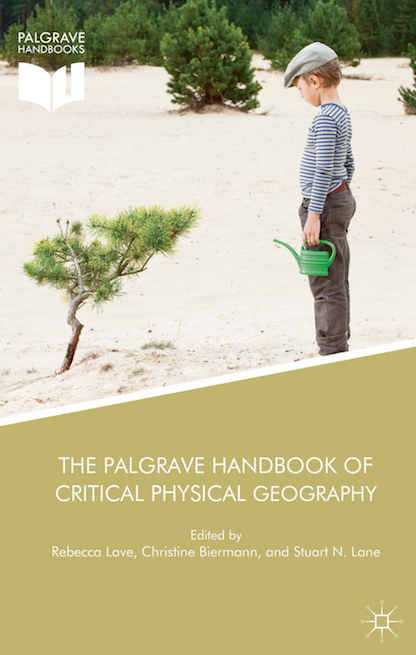Stuart Lane
The term “science” was coined in the early 19th century to give identity to those who study the natural world, distinct from “artists” (see this Nature Physics editorial), an intellectual split believed to have heralded the polarisation of two cultures, arts and sciences, bemoaned by CP Snow (1959). This division exists today, a division that perhaps explains why disciplines like geography and environmental science continually succumb to their fissiparous tendencies, ultimately failing to work with and to work within the very integrated challenges that the planet faces today.
Critical Physical Geography (CPG) is one, amongst others, challenge to this tendency. CPG combines critical attention to relations of social power with deep knowledge of a particular field of biophysical science as a means of understanding those critical environmental questions that are so often locked into particular disciplinary silos. Following from Lave et al. (2014), CPG advocates an approach to geographical knowledge that recognizes:
- the centrality of human presence in the environments which interest us;
- the power relations that have increasingly come to shape them; and
- the role of biophysical inquiry in promoting social and environmental justice.

CPG provides an exciting forum for both interdisciplinary (problem-led) and transdisciplinary (transformative ways of working) science. It provides opportunities to interrogate the ways in which science makes the world around us (e.g. Lane et al., 2011a) and the world makes science perform (e.g. Lane, 2014). It can unveil the powerful forces that shape the interface between science and society (e.g. Lane et al., 2013). It encourages radically different approaches to the practice of science in which scientists reposition themselves with respect to those with whom they work (e.g. Lane et al., 2011b). Finally, and following the ideas of Isabelle Stengers, CPG encourages us to be truly scientific, that is to allow those things that we study to slow us down, to make us think differently, and so to open up slightly different, perhaps radically different, understandings of the world within which we live (Lane, 2017).
